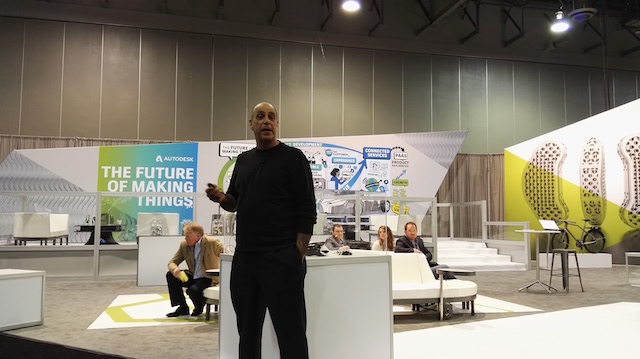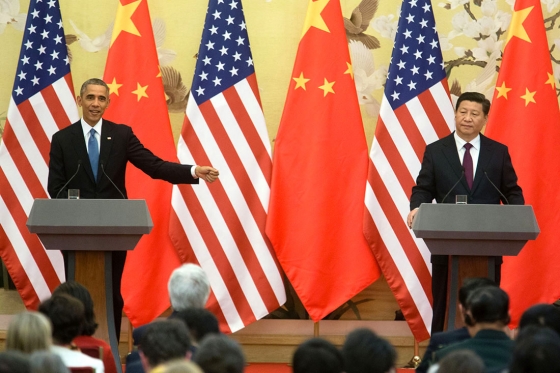“With technology I’m free,” says Hugh Herr of MIT Media Lab in the finishing segment of the Autodesk University 2015 opening keynote.
Herr was describing how he overcame losing both his legs to frostbite at age 17 after being caught in a blizzard. Determined to continue his passion for climbing he started developing better prosthetics, studied mechanical engineering and became the leader of MIT Media Lab’s Biomechatronics Group.
Prosthetic design is one of the aspects highlighted by Autodesk in their San Francisco Demonstration Gallery with good reason given the life transforming potential along with the imperatives of designing and manufacturing durable devices.
Design and manufacturing are naturally the key things for Autodesk with CEO Carl Bass outlining some of the possibilities in the opening keynote for the Autodesk University conference in Las Vegas yesterday.
Bass had some thoughts on the current buzzword of innovation, “it’s not one dramatic improvement of everything that came before, it’s most often combination of pragmatic improvements combining and refixing things in really new ways.”
“It’s about doing the really hard work, the often unsexy work, of packaging it all up and making it successful.”
The McGyver IoT
Bass illustrated this view of innovation with a story of troubleshooting his home lathe by duct taping his smartphone to the machine and using the microphone and gyroscope to detect when the cutting tip was becoming blunt.
As Bass pointed out, his “McGyver concoction” of a phone and duct tape is a good example of a basic Internet of Things application where sensors, this time built into the smartphone, detect the state of a machine. It’s a small step from there to developing lathes that change their own cutting tools when required.
Combining the IoT into design where a product’s design changes on feedback from its environment was a key part of the day’s discussions and touched upon Skylar Tibbit’s work on intelligent materials.
Autodesk CTO Jeff Kowalski took the longer view of how the shift from passive to generative design methods will change the way we work stating boldly, “in the next twenty years we’ll see more change in the nature of work than we’ve seen in the last two thousand.”
Rethinking manufacturing
Kowlaski pointed out how the way of working where a craftsman has to point a tool at materials to form them is now being left behind as we start to see materials, and machines, that can manufacture themselves.
For the present design and manufacture by humans remains the way we do things and in the media sessions one of the case studies was Airbus’ bionic partition where the company’s Bastian Schaefer and Autodesk’s David Benjamin described the process of redesigning a basic aircraft part.
The results of a combination of 3D printing – in this case laser sintering of a metal alloy – and generative design resulted in a partition 45% lighter and eight percent thinner, savings not insubstantial when every kilo in an airliner costs its operator 106Kg of kerosene each year.
An age of reduced consumption
Reducing the resources being used was a key part of Andrew Mcafee’s keynote presentation where he describes a ‘dematerialising’ economy where a modern society is using less in the way of resources and energy while still improving living standards.
Overall, the first day of the Autodesk University conference was an interesting exploration into how design and technology is changing lives both on the societal level and for individuals, as Hugh Herr’s story attests.
Paul travelled to Las Vegas as a guest of Autodesk
Similar posts:




